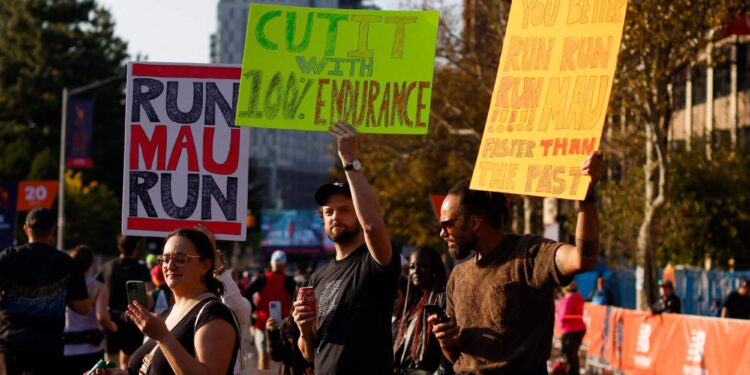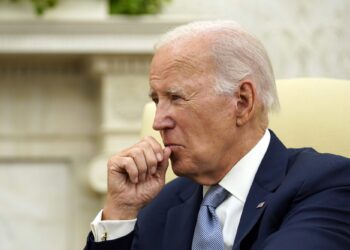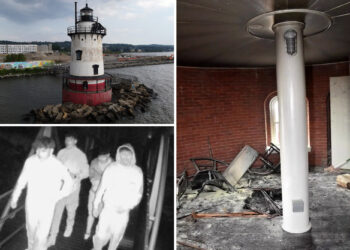
Runner’s woes
We were disappointed to learn that a runner was not allowed to participate in this year’s New York City Marathon because of the accommodations needed for her ostomy bag — a common medical device needed by up to 1 million Americans (“Disabled runner complaint,” Nov. 7).
Patients with inflammatory bowel disease and other chronic conditions that may require an ostomy bag deserve the chance to safely participate in sporting events, especially when reasonable accommodations are possible.
As an official charity partner of the New York City Marathon, the Crohn’s & Colitis Foundation is proud to have an inspiring team of runners that participates in the marathon each year.
We urge New York Road Runners to work with its athletes that need ostomy bags and other medical accommodations, so that the rewards and promise of this singular event are available to all runners.
Michael Osso,
President and CEO, Crohn’s & Colitis Foundation, Manhattan
Biz wiz wisdom
I appreciated Charles Gasparino’s piece, “For the Love of Country” (Nov. 5) about Home Depot founder Bernie Marcus.
It’s great to hear first-hand from one of America’s most successful entrepreneurs, especially one like Marcus, who in his later years can properly reflect. Unfortunately, what Marcus has to say is not particularly unique or insightful.
Marcus advocates for entrepreneurs and small businesses, yet he doesn’t acknowledge Home Depot’s and other big-box retailers’ roles in squashing mom-and-pop shops and making it difficult for new local businesses to succeed.
At the same time, the customer experience at Home Depot and similar corporations is uniformly miserable and gets worse by the day.
I would have loved to hear Marcus’s thoughts on possible solutions to these problems.
John Dudzinsky,
Brooklyn
MTA funding
I am writing in response to the recent article on new money for the Second Avenue Subway extension, a significant step toward improving New York’s public transportation infrastructure, which underscores the importance of securing funding for the MTA Capital Program (“Harlem stretch back on track,” Oct. 5).
The transit project list relies on the revenue to be generated by congestion pricing, estimated at approximately $1 billion annually. This funding is vital for upgrading stations, enhancing accessibility, modernizing signals and maintaining the overall network.
Riders did not campaign for and win congestion pricing only to reduce congestion. Without congestion pricing, the funding stream for all these critical projects is at risk, jeopardizing the future of the public transit system that serves the entire region.
It’s a necessity for advancing vital projects that benefit commuters from the entire region. As we celebrate progress, let’s acknowledge that congestion pricing is essential to modernize and maintain the transit systems we rely on.
Betsy Plum,
Executive Director, Riders Alliance, Brooklyn
Empty city streets
The main reason for empty New York City streets is not COVID: It’s violence (“NY, NY: It’s a ‘shell’ of a town,” Nov. 6).
The subway is plagued with crime. Tourism is down for the same reason. Random shootings in front of iconic restaurants such as Sardi’s and Times Square stabbings are signs of a city out of control.
If the powers that be do not crack down on crime, our city is doomed.
Maureen Sharkey,
Brooklyn
Want to weigh in on today’s stories? Send your thoughts (along with your full name and city of residence) to [email protected]. Letters are subject to editing for clarity, length, accuracy, and style.



























